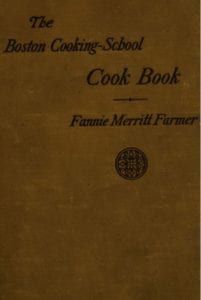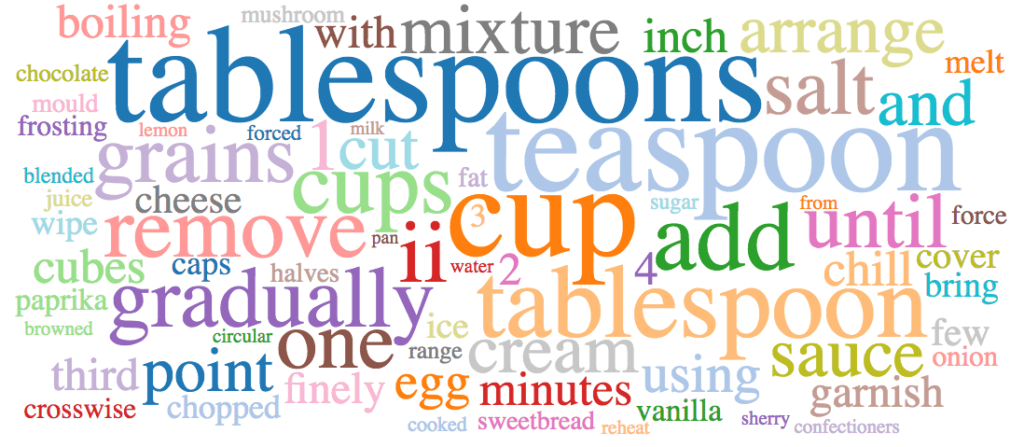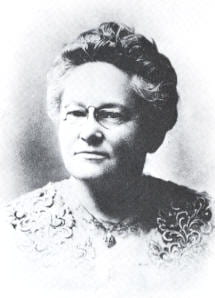 Fannie Merritt Farmer (1857-1915) was a major figure in American cooking in the late 19th and early 20th centuries. Her most successful cookbook, The Boston Cooking-School Cook Book, was first published in 1896 and sold millions of copies in many subsequent printings and editions. The 100th anniversary edition was published in 1996 and the book is still in print today.
Fannie Merritt Farmer (1857-1915) was a major figure in American cooking in the late 19th and early 20th centuries. Her most successful cookbook, The Boston Cooking-School Cook Book, was first published in 1896 and sold millions of copies in many subsequent printings and editions. The 100th anniversary edition was published in 1996 and the book is still in print today.
The book was the first to introduce precise measurement and Farmer later became “the mother of level measurements.” Her discussion of food composition, caloric calculations and the body’s need for nutrients, formed a systematic view of cooking that influenced cooking instruction for decades to come (Feeding America).
Text analysis of Farmer’s books clearly illustrates her emphasis on precise measurements. When her books are compared to the full set of titles in Early American Cookbooks, the over and under-represented terms show that measurement is the key difference. In the tag clouds below, the over-represented terms are tablespoons, teaspoons, and cup. The under-represented terms are teaspoonful, tablespoonful and cupful which were frequently used in cookbooks of the era. Farmer insisted upon the difference between a vague “teaspoonful” and an exact “teaspoon.”


This visualization was created by comparing two sets of texts, Fannie Farmer cookbooks and the full Early American Cookbooks set, using the Meandre Dunning Log-likelihood to Tagcloud algorithm in the HathiTrust Research Center Portal.

